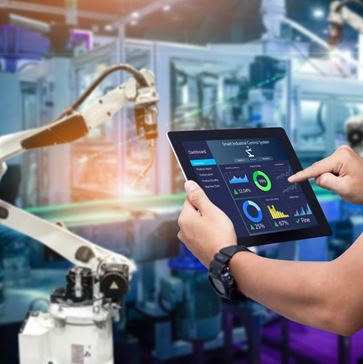
The supply chain professional of the future: super-human or team player?
Michiel Saeys - December 8, 2021

Will managing and planning tomorrow’s supply chains be a job only for a super-human? Research indeed suggests that a whole range of additional skills will be needed if we want to manage increasingly complex supply chains successfully. But I believe that this is more a plea to set up multidisciplinary collaborative teams than it is a call for that one-in-a-million know-it-all.
As a former demand planner, I know very well how challenging the job of a supply chain planner can be. Planners need to keep so many plates spinning, and with more complex supply chains and unexpected market events becoming the new normal, planners’ responsibilities are growing every day. The digital transformation is also requiring many more skills to be mastered.
More and new skills are needed to manage supply chains successfully
A recent survey among industry leaders conducted by Vlerick Business School uncovers the trend. Problem-solving skills, business understanding, the ability to analyze information, good decision-making, and effective organization and communication, are considered to be a lot more important today than they were in 2013.
Some special skills really stand out and are expected to significantly grow in importance in the future. Let me zoom in on a few of them.
Blog post
![]() End-to-end supply chain understanding, a skill that wasn’t even on the radar in the original 2013 survey, is considered to have become by far the most important knowledge-based skill. Managers and planners should be able to understand the major drivers in the supply chain and develop a deep understanding of how strategic and tactical decision-making affect operational activities and vice versa. Similarly, they should have a better understanding of how demand or supply disruptions propagate through every aspect of the supply chain, requiring that they take a helicopter view.
End-to-end supply chain understanding, a skill that wasn’t even on the radar in the original 2013 survey, is considered to have become by far the most important knowledge-based skill. Managers and planners should be able to understand the major drivers in the supply chain and develop a deep understanding of how strategic and tactical decision-making affect operational activities and vice versa. Similarly, they should have a better understanding of how demand or supply disruptions propagate through every aspect of the supply chain, requiring that they take a helicopter view.
![]() Human-machine collaboration is becoming extremely important. Planners should get relief from repetitive tasks and having to make highly complex calculations so that they can focus on taking the required helicopter view. Automation and AI should mean that they can avoid the constant firefighting and struggling with planning and master data details to keep day-to-day operations running. AI solutions should also provide the necessary signals, alarms, overviews, and other insightful information so that planners can always make the best decisions.
Human-machine collaboration is becoming extremely important. Planners should get relief from repetitive tasks and having to make highly complex calculations so that they can focus on taking the required helicopter view. Automation and AI should mean that they can avoid the constant firefighting and struggling with planning and master data details to keep day-to-day operations running. AI solutions should also provide the necessary signals, alarms, overviews, and other insightful information so that planners can always make the best decisions.
![]() Data science skills form a third important subset. As supply chain complexity grows, so does the quantity of data needed to keep automated solutions running reliably. Think of supply chains with increasing numbers of product locations, transport possibilities, and alternative sourcing options, leading to more data, increasingly complex master data, and a much wider range of alternative scenarios for analysis. Strong data science skills mean that supply chain professionals can analyze the data efficiently and effectively and draw the right conclusions.
Data science skills form a third important subset. As supply chain complexity grows, so does the quantity of data needed to keep automated solutions running reliably. Think of supply chains with increasing numbers of product locations, transport possibilities, and alternative sourcing options, leading to more data, increasingly complex master data, and a much wider range of alternative scenarios for analysis. Strong data science skills mean that supply chain professionals can analyze the data efficiently and effectively and draw the right conclusions.
Supply chain teams will become multidisciplinary
Blog post
Unsurprisingly, the survey also revealed that while a lot of skills are becoming more important, virtually none are decreasing in importance. This may give the impression that supply chains will have to be on the lookout for super-humans to master almost everything. I believe that would be a mistake if only because of the impossibility of finding such people.
I’m convinced that the supply chain professionals of today – each with their particular strengths and abilities – will have their place in tomorrow’s supply chains. But they will be integrated into much broader multidisciplinary teams displaying a wide range of complementary skills.

Blog post
This also sheds an interesting light on what we should expect from technological solutions. As well as automating repetitive tasks and providing insights to managers and planners, supply chain planning solutions should also support and facilitate collaboration between team members.
Want to gear up your supply chain organization? Discover the collaborative power of Unison Planning™.

Michiel Saeys
Senior Product Consultant at OMP BE
Biography
Combining his experience as a demand planner and consultant, Michiel delivers training and documentation on OMP for Demand Management and S&OP and advises internal and external customers on their processes and how to use and configure this area of Unison Planning.





